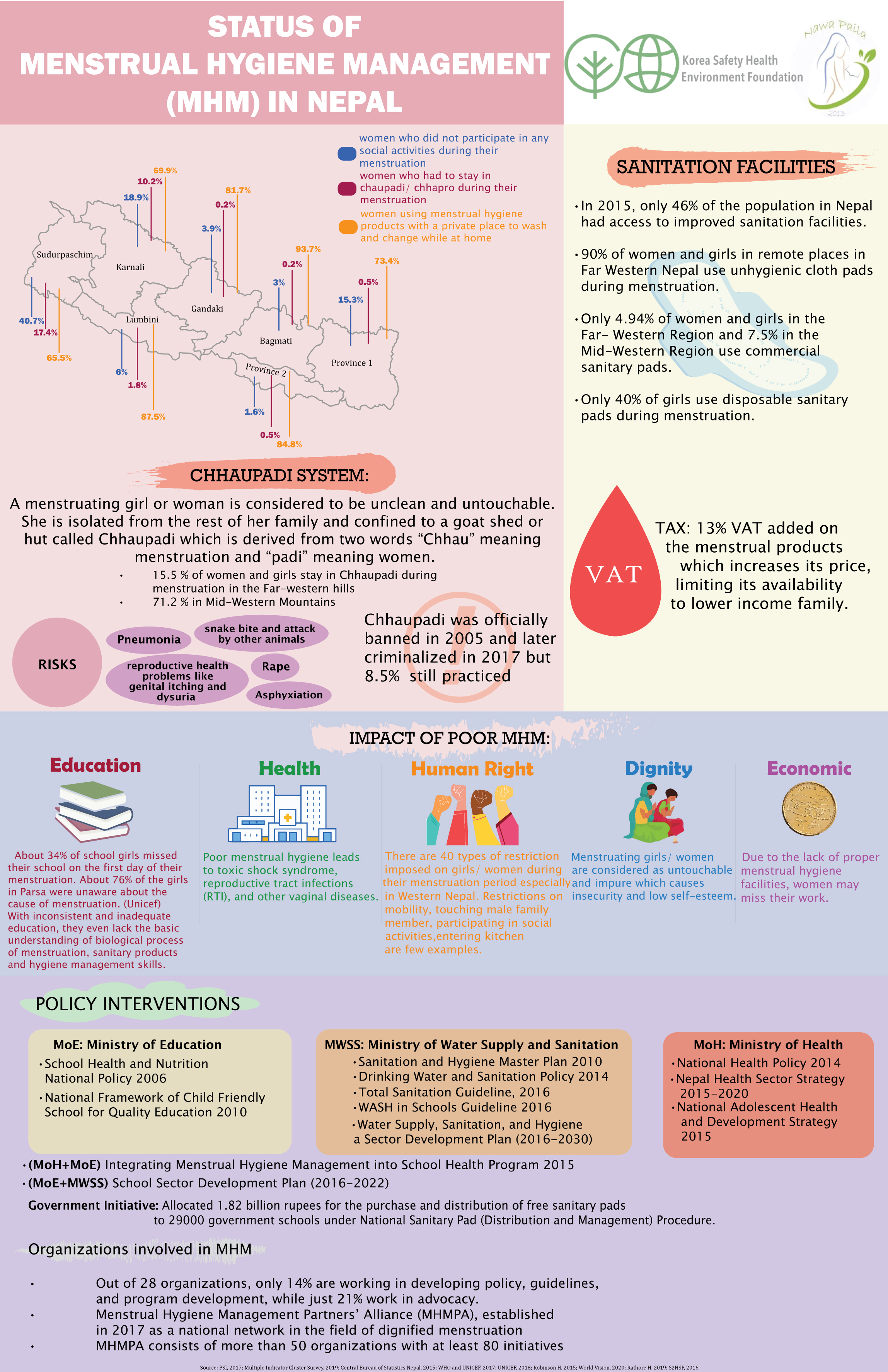Global Seed Grant Activity Board
[Nawa Paila] Improving sanitation and hygiene behavior in community schools, Nepal
2기
작성자
Aakash Khadka
작성일
2021-07-25 15:14
조회
245
- Project description
Project purpose
The overall purpose of the project is to promote health and education benefits through the implementation of proper sanitation and hygiene campaign. It focuses on the theme of safe drinking water, personal/ hand hygiene, and menstrual hygiene management. Through the integration of knowledge and life-skill-based education, we intend to enable children and the community to make an informed decisions.
Activities plan
Due to the COVID-19 pandemic situation, the implementation of the project has been a challenge. As per the Government of Nepal’s notice, training or seminars in-person is not allowed. Considering the health and safety protocol, we plan to carry out the following activities:
- Developing menstrual hygiene management (MHM) education material.
- Capacity building in school students through online platforms. We also intend to raise an awareness campaign in the community through female community health volunteer’s which will be carried out once the COVID situation improves.
- Drinking water quality (microbial) test using Rapid Coliform Test Kit (RCTK).
- Implementing WASH club in schools
- Project progress
*Details about Who, What, When, Where, Why, and How
Following the COVID-19 restrictions, Kathmandu Valley was under lockdown because of which we organized most of our meetings and program through virtual platform.
- Conduction of talk program
Bharat Adhikari, community and capacity development expert, Rural Water Supply and Sanitation Fund Development Board (RWSSFDB)presented the cultural significance and societal perspective on menstruation in Nepal. Mr. Adhikari highlighted the role of male members and educated people to advocate dignified menstrual hygiene and trigger behavior change in the community. He further related menstrual hygiene with other sustainable development goals (SDG 3, 4, 5, 6, 8).
Priti Sharma, program specialist, VSO Nepal presented the restrictions that menstruating women face in society not only in rural areas but also in urban areas. Moreover, the practice of the Chhaupadi system affects the health, dignity, mental health, and even the life of menstruating women. Ms. Sharma also highlighted national policies, programs, and progress to create dignified menstruation.
Shubhangi Rana, co-founder, Pad2go, presented the approach of Pad2go:providing affordable and accessible sanitary pads, awareness and advocacy, and sanitary facilities. She further stressed the need of VAT exemption on all menstrual products so that it is accessible even to low income families. She also highlighted the need to discuss inclusive menstruation that includes differently-abled, transgender men, menopause, and the Dalit community.
Poor menstrual hygiene practice has an impact on the education, health, environment, and overall socio-economic development of a country. As a way forward, collaboration and co-operation between different institutions (NGOs, in-line ministries, social enterprises) are crucial to bringing a positive change from ground to policy level through a holistic approach.
- Selection of schools and FCHV’s
- Developing MHM educational materials
- Project plan
- Conducting training programs
For the FCHV’s, it is challenging to conduct an online training program because most of them do not have access to the internet or the computer. Therefore, depending upon the situation, we plan to conduct this training program in person.
- Testing drinking water quality through rapid coliform test kit.
- Conducting online competition among school children
The pictures from the meeting with sanitation professionals, the talk program and team members follow:
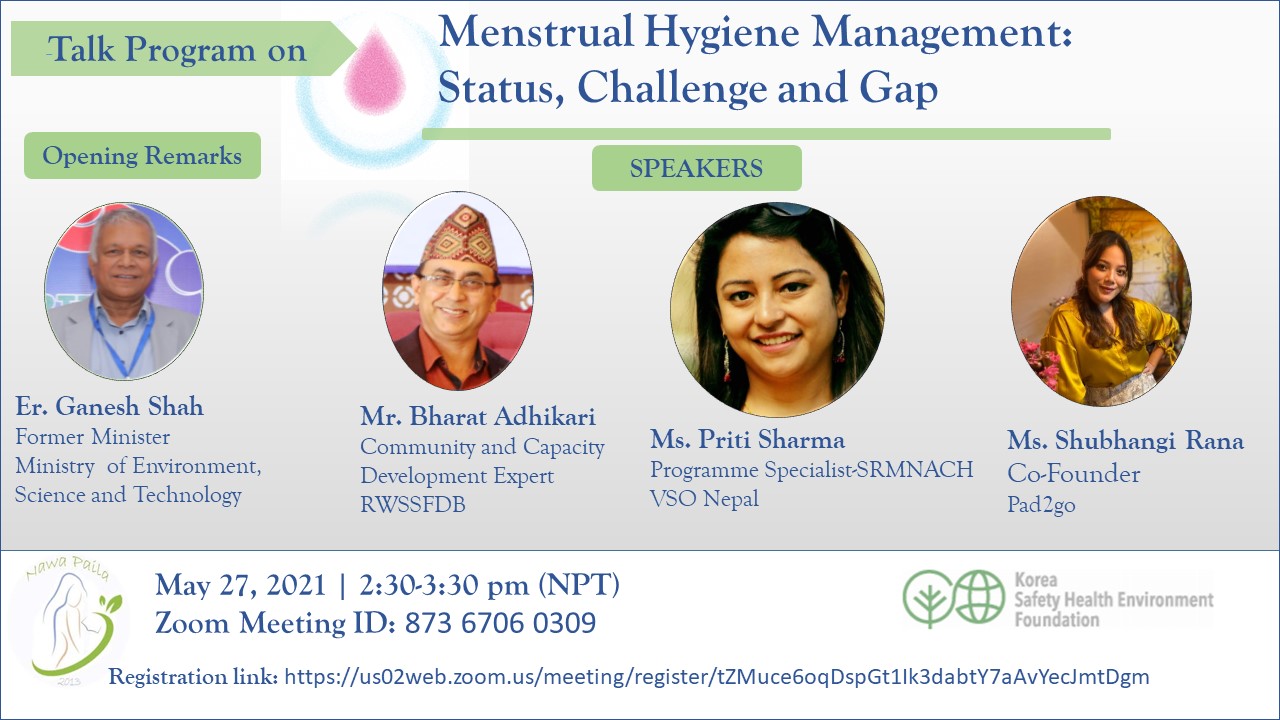
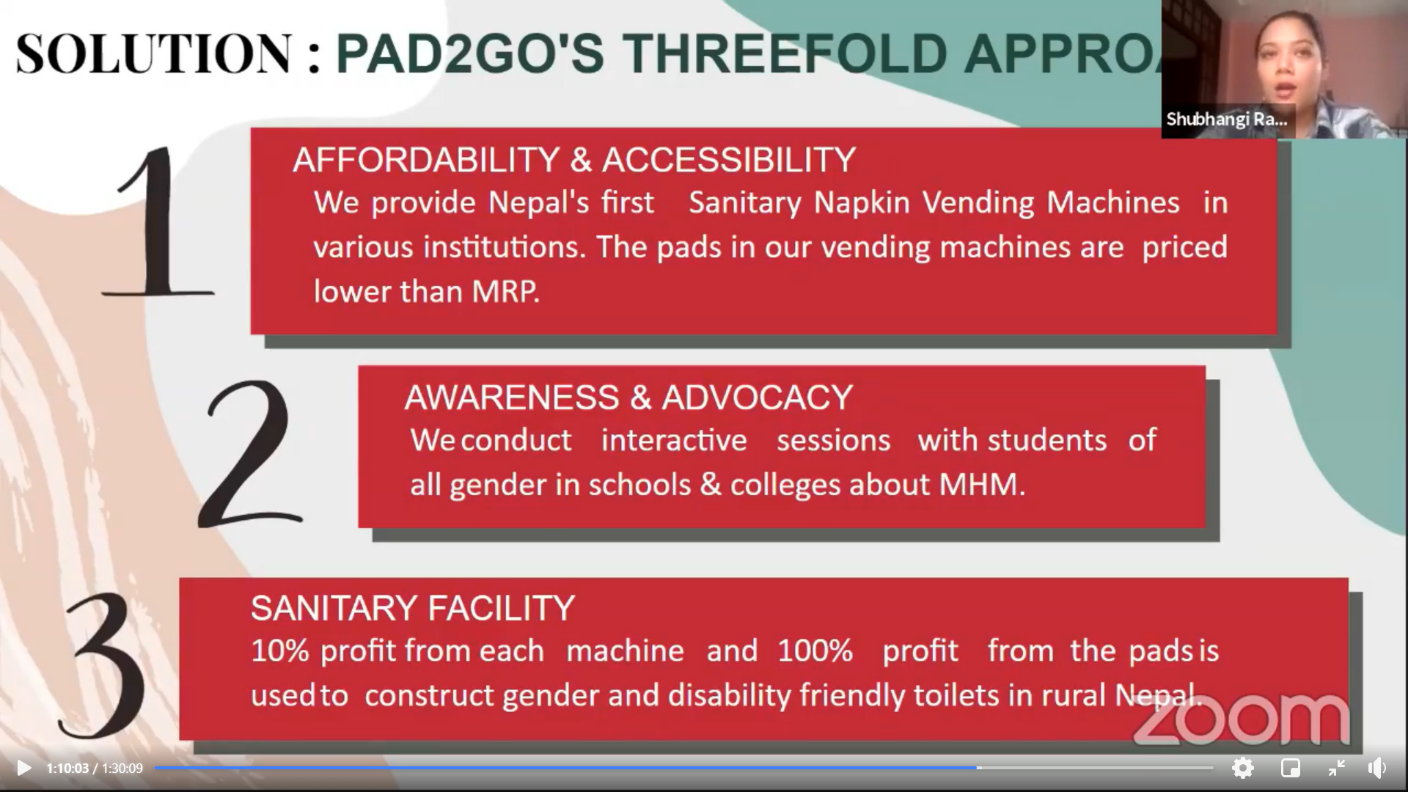
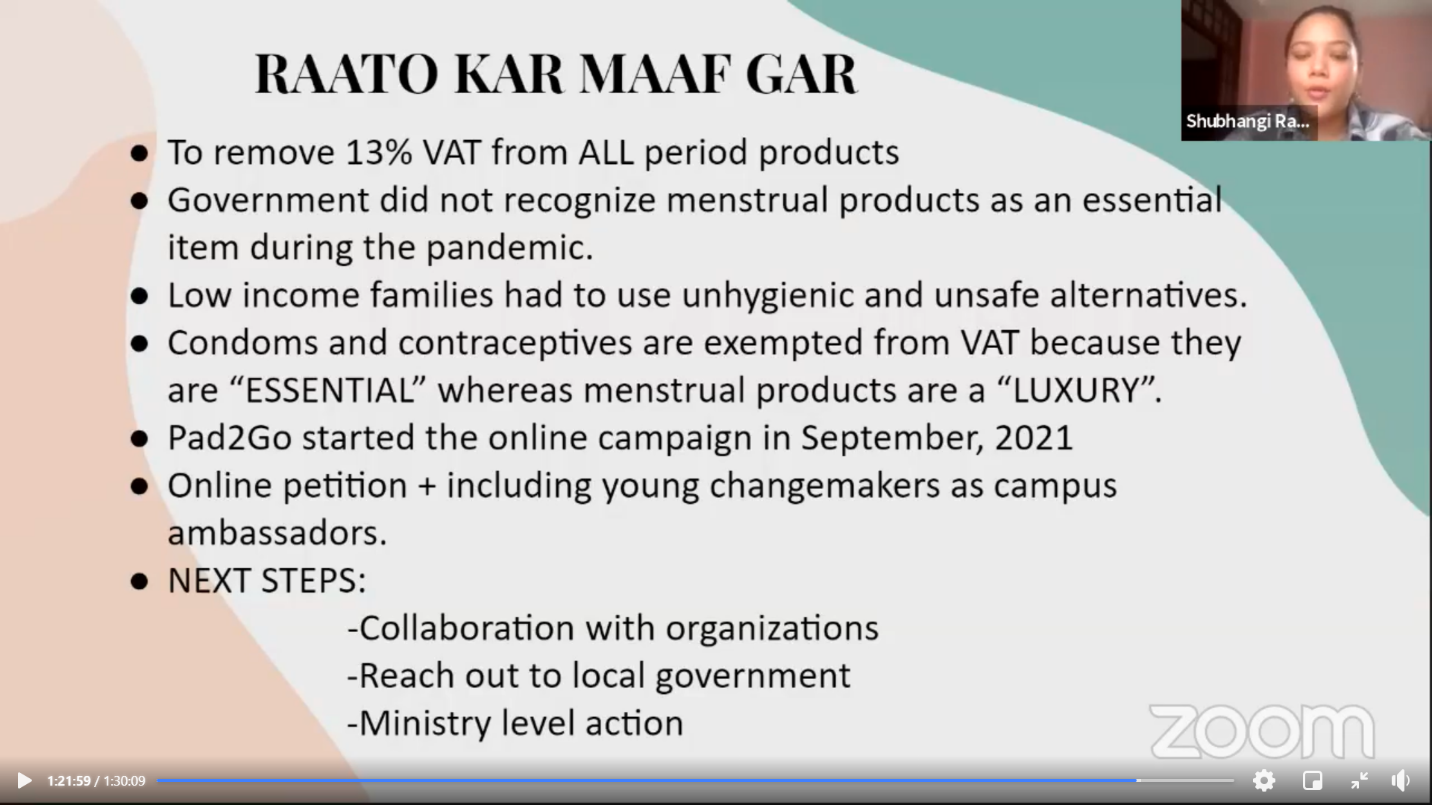
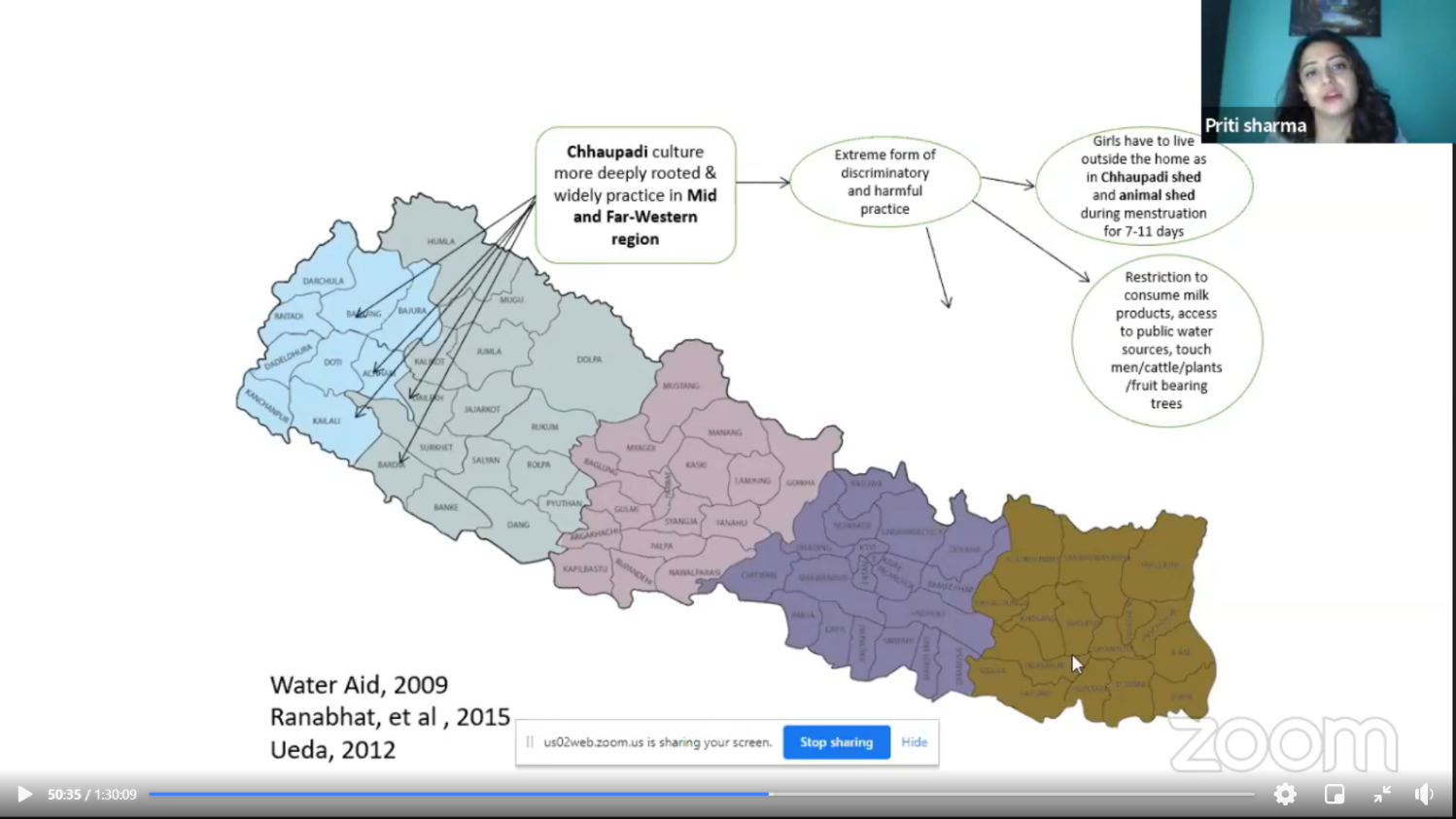
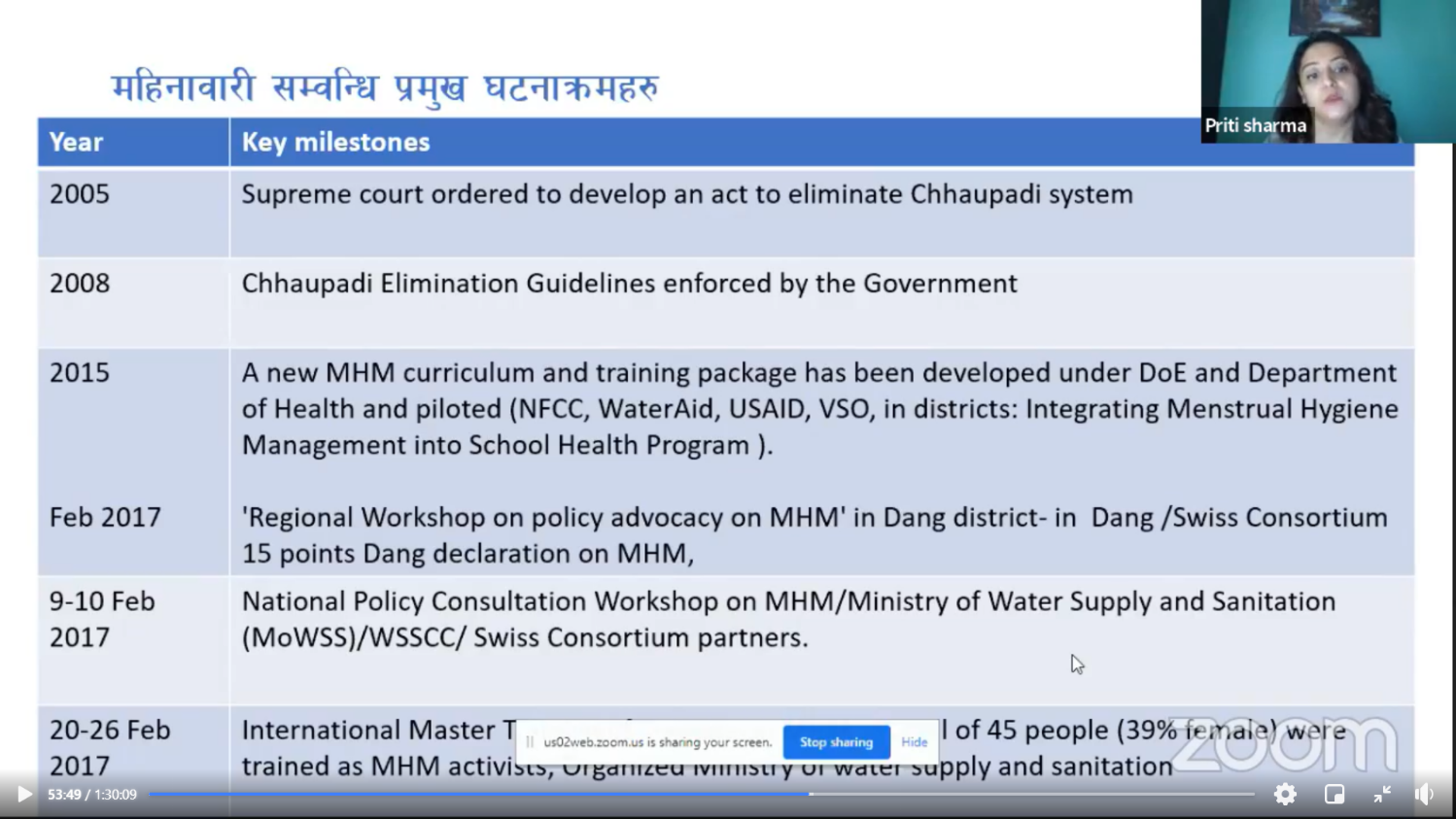
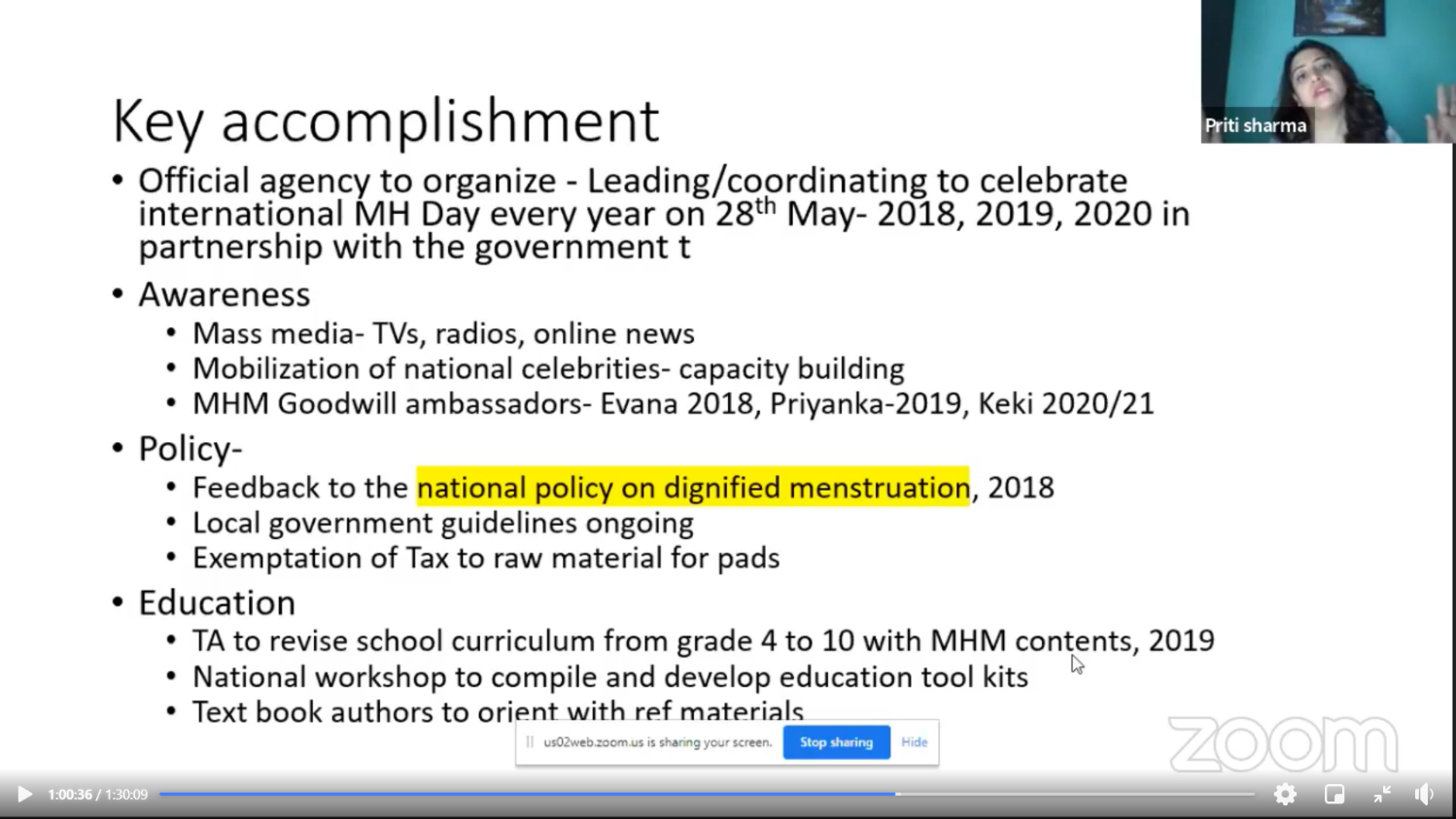
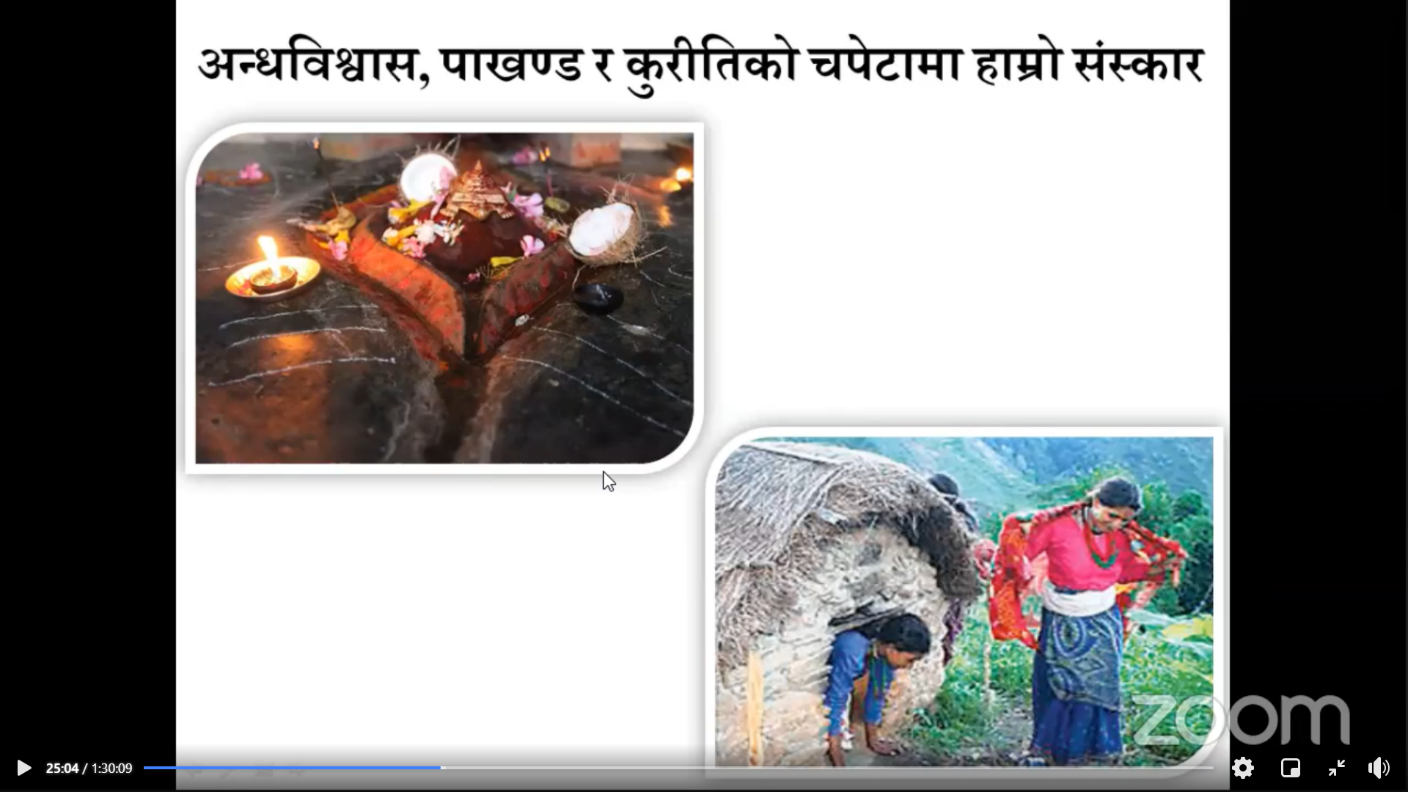
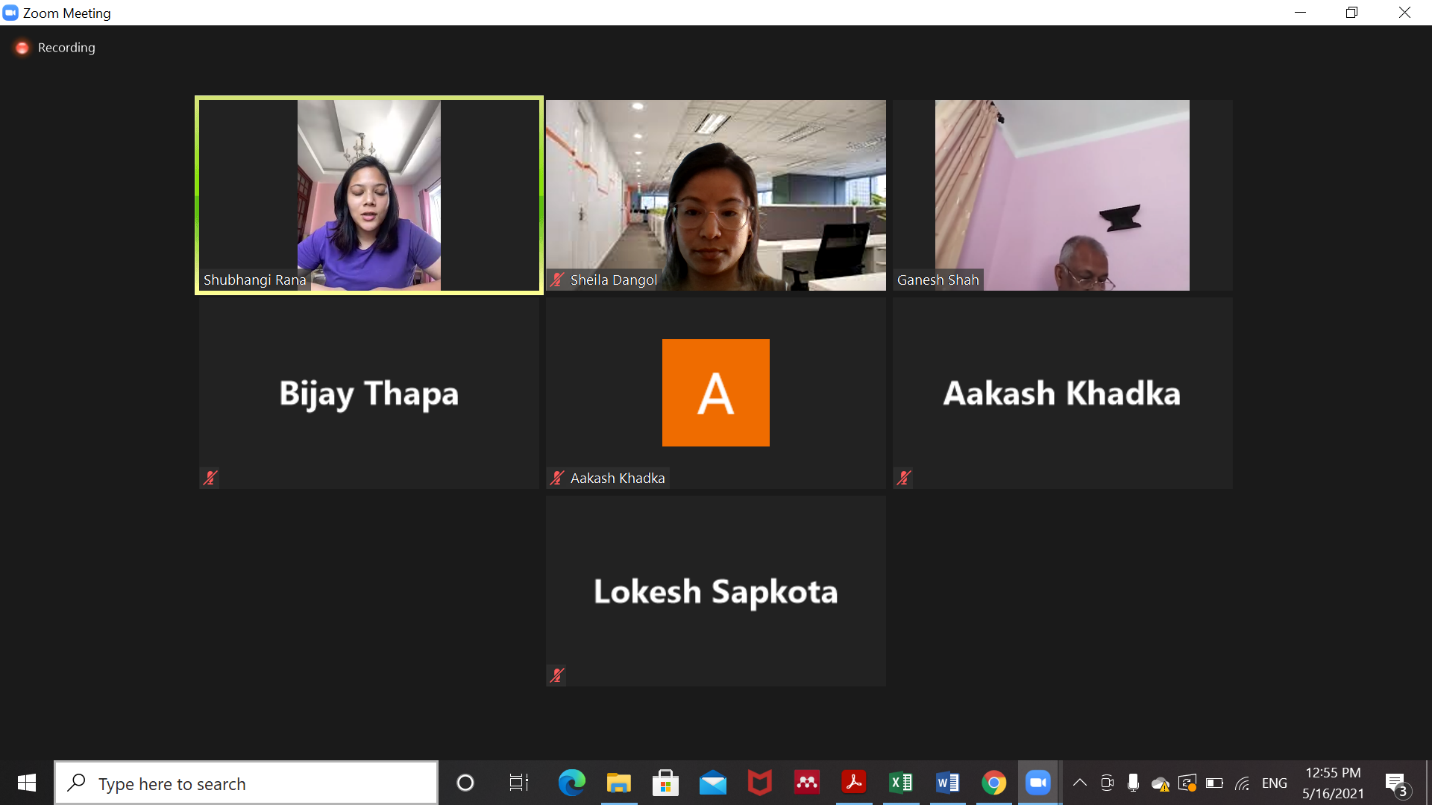
The pictures of the pamphlet designed on MHM follow:
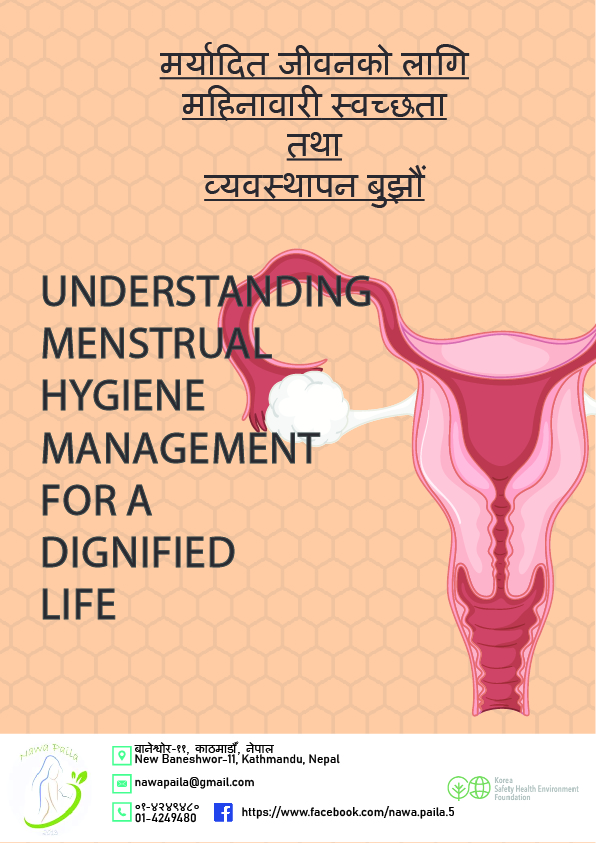
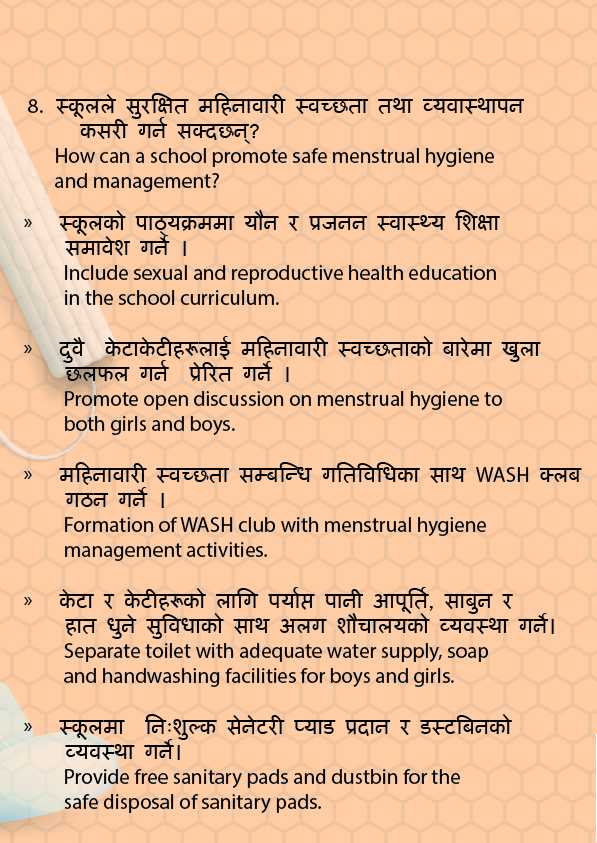
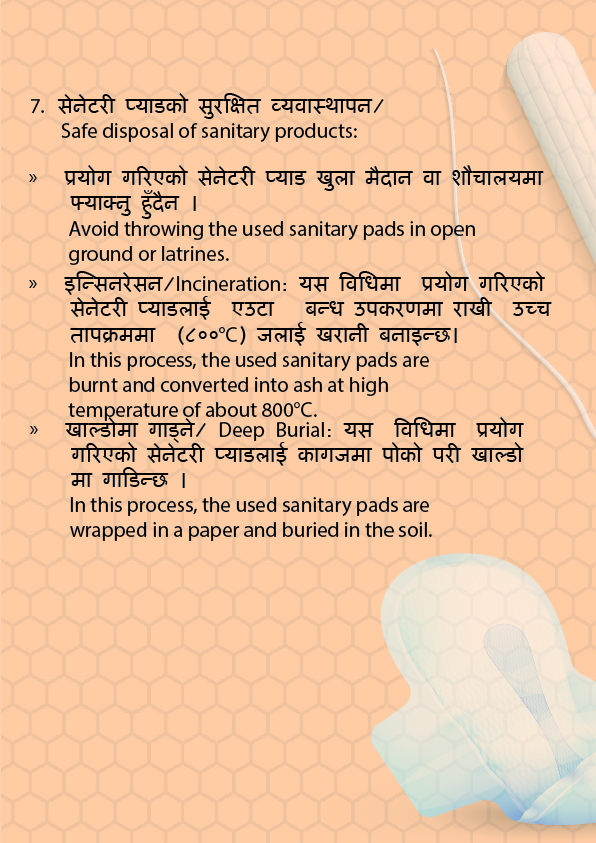
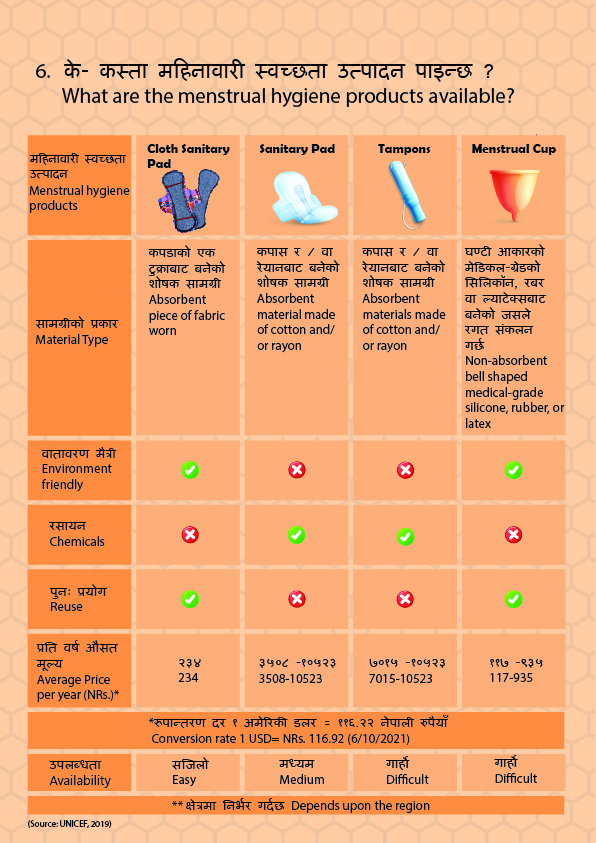
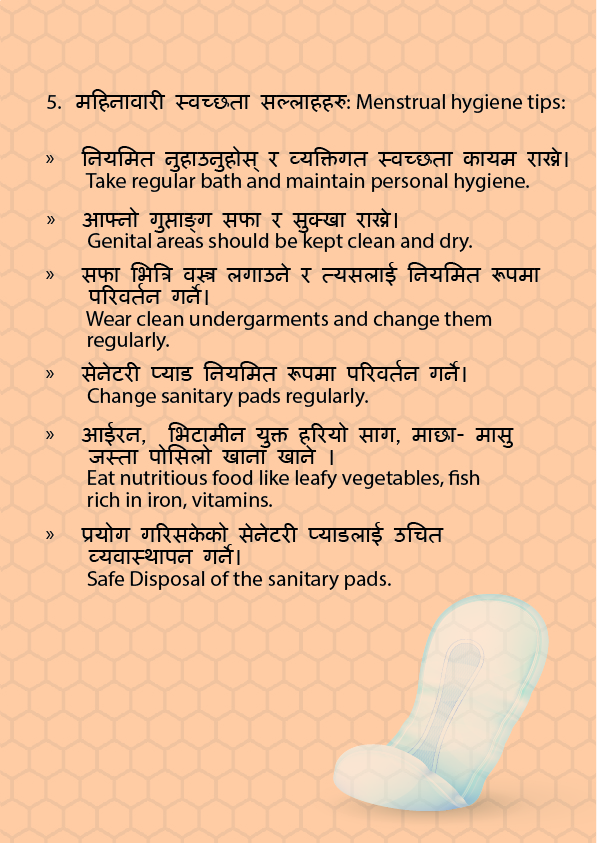
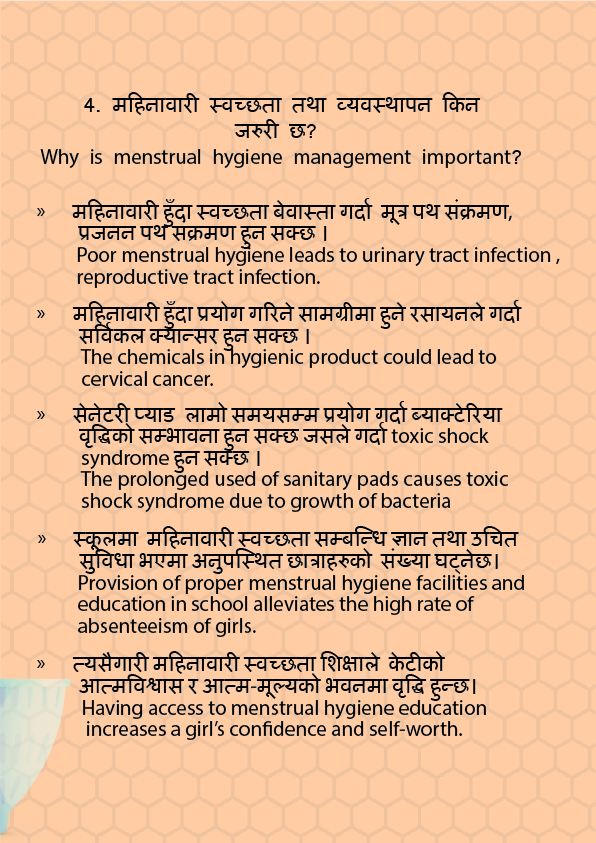
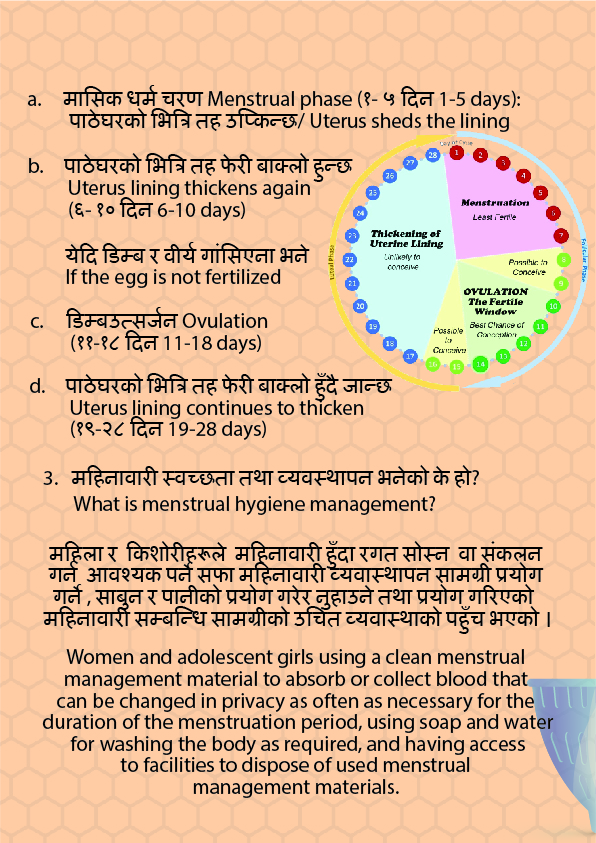
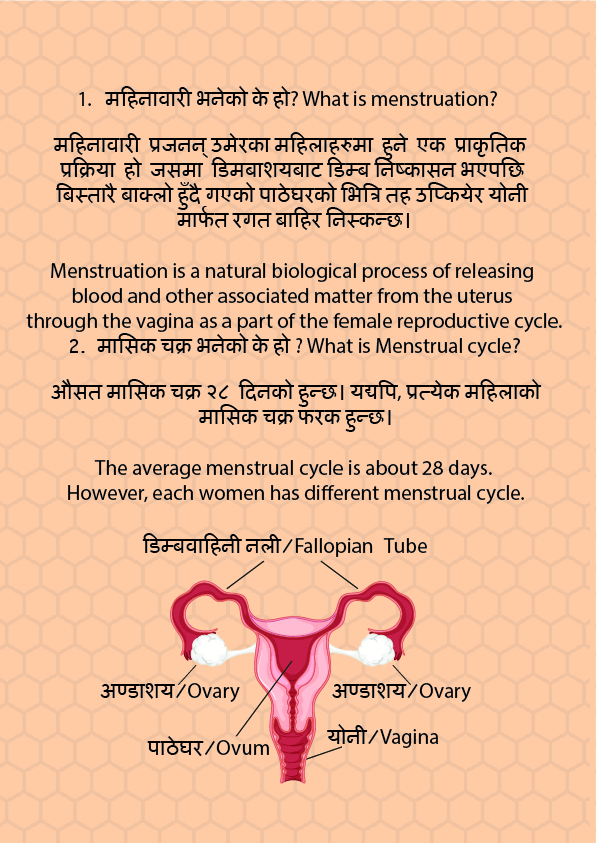
The picture of the poster designed on MHM follows:
